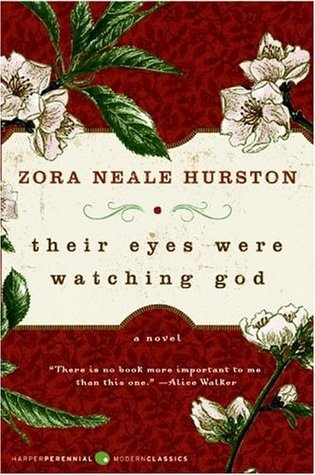Chapter 1
byChapter 1 of Their Eyes Were Watching God begins with Janie reflecting on her life, symbolizing it as a tree with many branches representing various experiences—some joyful and others filled with sorrow. The opening lines suggest that men’s dreams are like ships forever sailing, unattached to any harbor or solid purpose. This imagery paints a picture of unattainable aspirations that drift endlessly, lost in time, suggesting that many dreams may never fully materialize. In contrast, women are depicted as being more connected to their memories, holding onto them tightly and allowing them to shape their actions. These differing relationships with dreams set the stage for Janie’s journey, where her aspirations are confronted by the harsh realities of her environment and the expectations placed upon her.
Janie returns to her hometown of Eatonville, where the lively community contrasts sharply with her own somber mood. As she walks through the town at dusk, the residents, who had been mere observers of the day, become animated with gossip about her. Janie’s choice of work clothes, rather than a dress, and her youthful appearance become topics of judgment, sparking envy and assumptions from the other women. They scrutinize her every action, speculating about her past and her relationships with men. This sharp contrast between Janie’s presence and the town’s reaction underscores the divide between societal expectations and the complexities of Janie’s own experiences, which the townsfolk can only guess at. The judgment she faces serves as a harsh reminder of the pressure women, particularly those who deviate from the norm, face in a small, tight-knit community.
The gossip surrounding Janie’s return focuses on assumptions about her personal life, with the townspeople questioning her age, relationships, and wealth. Their speculative conversations are steeped in envy, their judgments reflecting their own insecurities rather than any real understanding of Janie’s life. Janie’s beauty and confidence become a source of fascination and, at times, resentment, as the townspeople fail to appreciate her individuality and instead reduce her to a figure for their gossip. The focus on her appearance and personal choices highlights the way in which women are often objectified and judged for things outside their control. This behavior is a reflection of the larger societal norms that place value on appearance and conformity, often disregarding a person’s deeper emotions and desires. As Janie faces this judgment, her sense of self begins to clash with the imposed roles placed on her by the community, creating a tension that will be explored throughout the novel.
Amidst the harsh gossip and speculation, Pheoby, Janie’s best friend, stands apart from the rest of the town’s people. Initially caught up in the gossip herself, Pheoby quickly shifts into a supportive role, offering Janie both practical assistance and emotional support. When Pheoby arrives with food for Janie, this simple gesture becomes an act of compassion, opening the door for a deeper and more meaningful conversation between the two women. Pheoby’s concern for Janie contrasts sharply with the malicious curiosity of the other townspeople, offering a moment of respite from the judgment that surrounds Janie’s return. In this conversation, Janie opens up about her inner struggles, particularly the emotional void left by Tea Cake’s absence. This exchange marks a turning point for Janie, as it provides a space for her to begin expressing her pain and vulnerability, setting the stage for her ongoing journey of self-discovery.
This chapter lays a solid foundation for Janie’s emotional journey, setting the stage for her exploration of identity, love, and independence. The judgments and gossip from the townsfolk act as a reflection of the societal norms that Janie is forced to navigate, while her conversations with Pheoby introduce a more intimate perspective on her inner world. Janie’s return to Eatonville is not only a return to a physical place but also a return to the complex relationships that will shape her understanding of herself and her place in the world. The contrasts between the external pressures and Janie’s internal desires create a rich thematic exploration that will drive the narrative forward, making her journey one of both personal growth and resistance to the limitations imposed by others. The foundation for Janie’s transformation is laid here, offering a glimpse of the self-awareness and emotional resilience she will develop as the story progresses.

